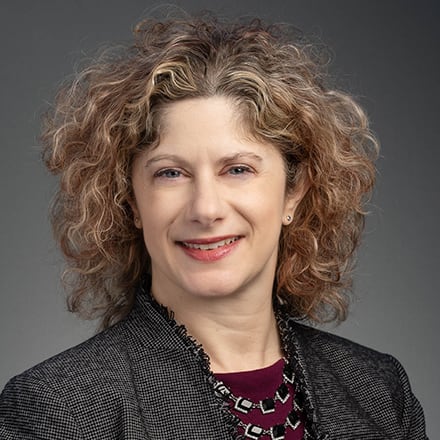Understanding the Types of Economies and Economics Around the Globe

Understanding the numbers
When reviewing job growth and salary information, it’s important to remember that actual numbers can vary due to many different factors—like years of experience in the role, industry of employment, geographic location, worker skill and economic conditions. Cited projections are based on Bureau of Labor Statistics data, not on SNHU graduate outcomes, and do not guarantee actual salary or job growth.
Economics is a rewarding field for anyone interested in the cost of goods and services and who enjoys making strategic decisions and analyzing data. There are many career options in a variety of areas that need economists to provide sound reporting and analysis based on data collection and interpretation. Those career options span the public and private sectors, financial services, academics and all levels of government.

According to Chiara Yates, an adjunct faculty and academic partner with Southern New Hampshire University (SNHU), economics is the social science that studies how individuals and countries make decisions on how to use available resources in the most effective way.
"Because resources like time are scarce, these decisions cause trade-offs. Every time we make a decision, we are applying economics," she said.
Yates has been teaching economics at the university level since 2012, and in addition to her teaching role, has also served SNHU learners as an economics subject matter expert and academic advisor. “We make (economic) decisions based on the concept of scarcity: time scarcity, money scarcity and other types of limited resources,” she said.
What Are the 4 Basic Types of Economies?
There are 4 main types of economic systems known as economies: a command economy, a market economy, a mixed economy and a traditional economy. An understanding of the differences in types of economies can help you decide how to deep dive into a potential career working in the field of economics:
- Command Economy – A command economy is an economy in which the government, rather than the forces of supply and demand, controls all economic activity and transactions, according to the Cambridge Dictionary. A country with a communist government is an example of a command economy.
- Market Economy – A market economy is free of all government control. “The economic outcomes are determined by the market forces and the so called ‘invisible hand,’ to use a term coined by philosopher Adam Smith,” Yates said. The invisible hand is a metaphor commonly-used among economists to describe how market forces work together.
- Mixed Economy – This is a hybrid between the command and market economic systems. A mixed economy can be more command or more mixed depending on the government in question. “Most economies in the world are mixed economies, including the United States,” Yates said.
- Traditional Economy – A traditional economy centers around survival, according to National Geographic. These economies often rely on agriculture and raw materials that can be traded to developed countries for finished goods. Raw materials can include oil, coal and timber.
Which Economic System is Best and Why?
Yates said that most economists favor a market-based economy where the price system determines the outcomes of all market transactions. “In a market-based system, every player enters voluntarily in the transactions if they agree on the price,” she said.
The government sometimes intervenes in the economy to resolve inefficiencies caused by two factors, according to Yates:
- Externalities – These include positive or negative effects caused by transactions, such as pollution caused by driving cars.
- Inequalities – These include situations such as lower wage earners not being able to afford rents, so the government may intervene with rent control or subsidies. Similarly, the government may intervene with unemployment or disability benefits when someone loses their job or is otherwise unable to work.
“Most economies either have a mixed market system or are migrating toward one, like China," she said. She feels this is an indication that a mixed market system seems to work the best.
Find Your Program
What Are the 3 Main Branches of Economics?
Within the 3 main types of economies, economic decisions, big or small, can be made and applied with knowledge of the three main branches of economics known as applied economics, macroeconomics and microeconomics.
The key differences among them, according to Yates, are:
- Applied Economics – This is a branch of economics that uses economic theory and research to plan business decisions and public policy decisions. Some types of applied economics are engineering economics, case studies and simulations.
- Macroeconomics – This area of economics centers on the economic activity and decisions made within a region or country and at the government level. “In lay terms, macroeconomics deals with government spending and taxation, international trade decisions and how to adjust interest rates to control inflation and unemployment,” Yates said.
- Microeconomics – This area studies the economic activity and decisions made by households and businesses, such as decisions regarding consumers, consumption and production decisions.
What is the Career Outlook for Economists?
If understanding the types of economies and branches of economics sounds interesting to you, there is likely a career option that will be a great fit.
As an economist, there are professional opportunities in virtually every job sector. Whether your interest lies in corporate, for-profit work, government, public service or higher education, a master's degree in a subject such as business analytics can open many doors.
- Academic economists – As an academic economist, you could pursue a research career or work as a professor or academic administrator where you might teach others how to interpret and forecast economic trends or analyze data using mathematical models and statistical tools, according to the U.S. Bureau of Labor Statistics (BLS).
- Government and not-for-profit economists – In this area, you may work as a policy advisor or policy analyst, conduct research or work for the government at the federal, state or local levels. You could also work with international agencies. Working at the governmental level could also allow you opportunities to inform policymakers or serve as the policymaker yourself about the impact of laws and other economic decisions, according to BLS.
- Private sector economists – There are any number of career paths available in the private sector, including working as a consultant, financial economist, research economist, economic forecaster or analyst. You may also work for financial services, investment banks or consulting firms. Advising businesses about economic problems and potential solutions is another role that you might have, BLS said.
With a median pay of $115,440 in 2024, according to BLS, the career outlook for economists is strong.* The field is projected to grow 5% through 2033, BLS also reported, which is faster than the national average for all occupations.*
What Type of Major is Economics?
A bachelor's degree in economics can prepare you for a customizable career that can take you in a variety of directions. Making decisions, working with numbers and understanding why things are happening are hallmark traits of the field of economics.
A bachelor’s degree is typically required to work in the field of economics, though most roles require at least a master’s degree, according to BLS. Depending on the role, a doctorate may be necessary.
At the master's degree level, you'll likely study organizational analysis, data analysis and effective data reporting as well as decision-making.
An MBA in Business Analytics is one master's degree you could pursue for a career in economics. In addition to building core math and reasoning skills, you may also interpret data, gain insights from analyzing historical data and use predictions to improve performance.
These skills overlap with those of economists, who, according to BLS, analyze data using math models and statistical tools, collect data and conduct surveys and advise businesses.
A Career in Economics
Ultimately, an economist is someone who studies human behavior and can explain and evaluate cultural and social outcomes by using models, economic theory and data, according to Yates. If this sounds like it could be you, the field of economics could be a great fit.
Touching on virtually every industry, economics is a flexible, multi-faceted career field grounded in the skills to make sound economic decisions. This decision-making can help corporations, governments, financial institutions and communities make data-driven decisions so that businesses and services can thrive.
Discover more about SNHU’s online MBA in Business Analytics: Find out what courses you'll take, skills you’ll learn and how to request information about the program.
*Cited job growth projections may not reflect local and/or short-term economic or job conditions and do not guarantee actual job growth. Actual salaries and/or earning potential may be the result of a combination of factors including, but not limited to: years of experience, industry of employment, geographic location, and worker skill.
A former higher education administrator, Dr. Marie Morganelli is a career educator and writer. She has taught and tutored composition, literature, and writing at all levels from middle school through graduate school. With two graduate degrees in English language and literature, her focus — whether teaching or writing — is in helping to raise the voices of others through the power of storytelling. Connect with her on LinkedIn.
Explore more content like this article

Academic Spotlight: Monique Jordan, Academic Dean of Online Product Health for Business Programs

Academic Spotlight: Dr. Ashley Dellosa, Associate Dean of Business

What Does a Bookkeeper Do? A Look Into the Role and Necessary Skills
About Southern New Hampshire University

SNHU is a nonprofit, accredited university with a mission to make high-quality education more accessible and affordable for everyone.
Founded in 1932, and online since 1995, we’ve helped countless students reach their goals with flexible, career-focused programs. Our 300-acre campus in Manchester, NH is home to over 3,000 students, and we serve over 135,000 students online. Visit our about SNHU page to learn more about our mission, accreditations, leadership team, national recognitions and awards.


